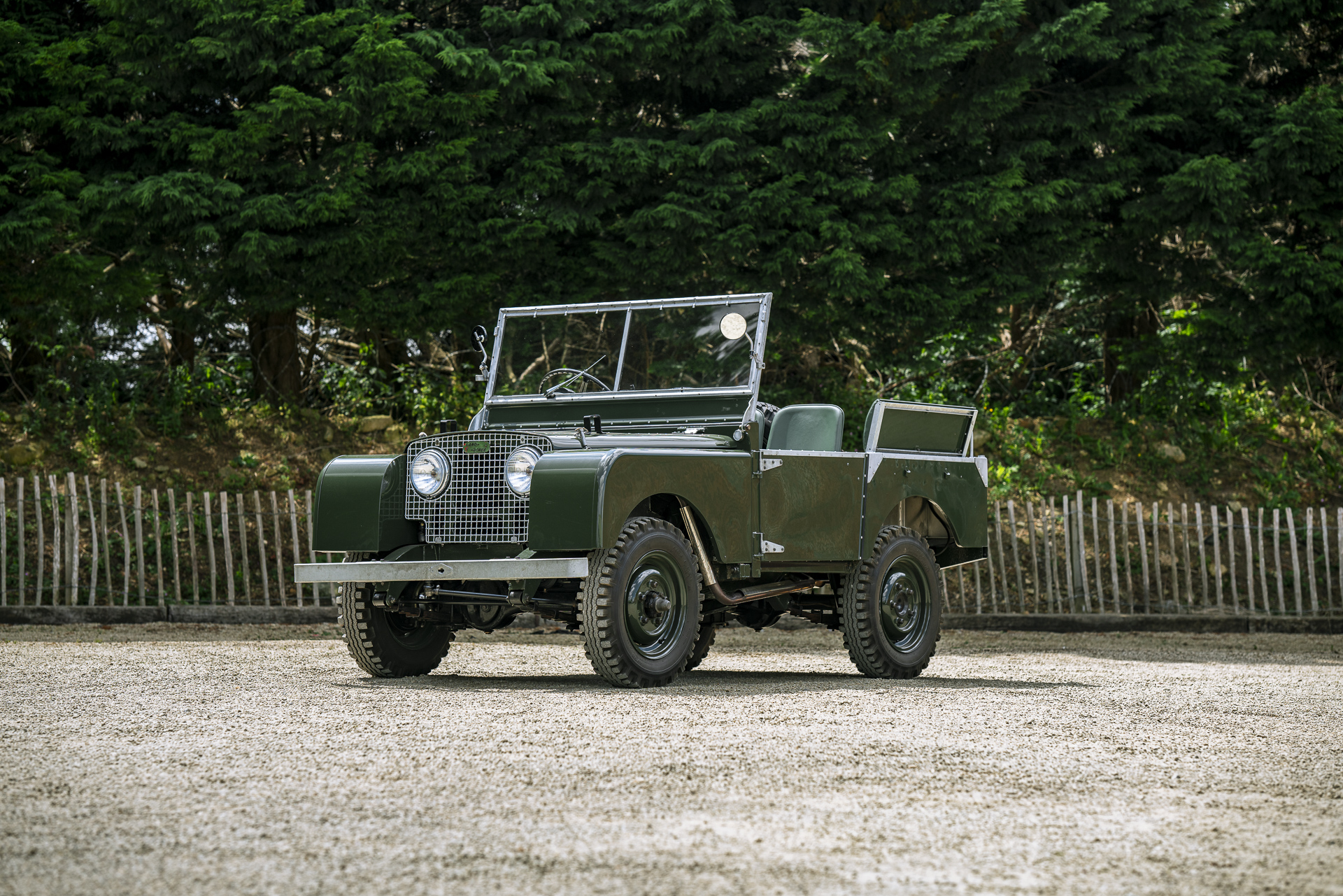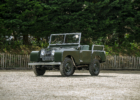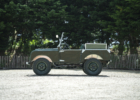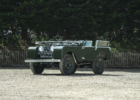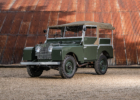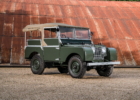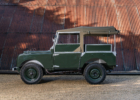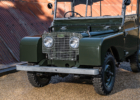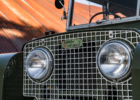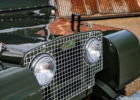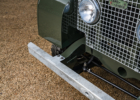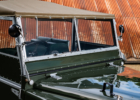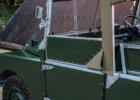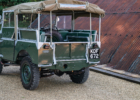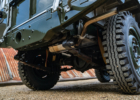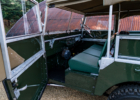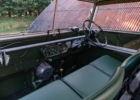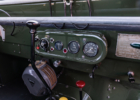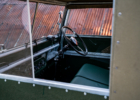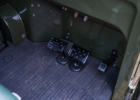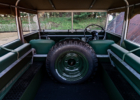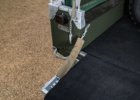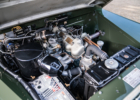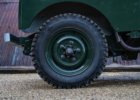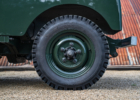1951 Land-Rover Series 1 80IN
- 1951 Land-Rover Series 1 80in for sale
- Rare right-hand-drive UK-market car
- Fully restored using original chassis, engine and major components
- c400 miles since full engine rebuild
| YEAR | 1951 |
| MAKE | Land Rover |
| PRICE | £59,950 |
Walk-around Video
VEHICLE DESCRIPTION
Painstakingly restored by its owner – a mechanical engineer – this Land-Rover Series 1 is a rare UK-market survivor. Built on 3 January 1951, it was given the Gloucestershire registration KDF 672 and sold via Steels Garages in Cheltenham.
The first owner listed in its logbook is Reginald Reed, who lived in Mitcheldean on the western fringes of Gloucestershire. By 1980, it was only a few miles down the road in Lydbrook with new custodian Michael Prior, and between then and 2015 it passed through three more Gloucestershire-based owners.
In May 2015, the Land-Rover was acquired by an enthusiast based in Stratford-upon-Avon. By that time, it had been dismantled and was in need of a complete restoration, but the original 1.6-litre petrol engine was still fitted. Other major components are also thought to be original – the carburettor and wheels are date-stamped to when the car was built, the axles feature the correct batch number, and even the distributor mount and interior gauges are correct for this age of Land-Rover.
Among the very few deviations from standard specification following the restoration is the fact that the seats have been retrimmed in leather – something that was offered in the period Tickford Station Wagon variant.
The chassis was galvanised but it was decided that the body panels were beyond repair. New inner and outer wings were sourced, plus door tops and tailgate, but the bonnet was retained – and the old panels have been kept with the car. Even the original bolts were cleaned up and reused where it was safe to do so, and the correct Lucas 700 headlamps were sourced.
The gearbox, front and rear axles, and engine were all rebuilt. The latter received hardened valve seats plus – among other components – new pistons, bearings, camshaft, timing chain, seals and gaskets, valve guides and core plugs.
The result is a superbly presented example of the highly coveted Land-Rover Series 1 80in that is being offered for sale on the open market for the first time since the 1980s having been restored with fastidious attention to detail. There is now a strong following for these iconic vehicles, and with most right-hand-drive survivors being cars that were exported new to Australia, this represents a very rare opportunity to buy an early UK-market Series 1.
MODEL HISTORY
Few cars can claim to be genuinely revolutionary, but the Land-Rover is most definitely one of them. In the aftermath of World War Two, Rover’s chief designer Maurice Wilks – perhaps inspired by using a Jeep on his farm in Anglesey – came up with a vehicle of unmatched ‘go anywhere’ versatility.
When it was launched in 1948, the Land-Rover used an 80in wheelbase and a 1.6-litre four-cylinder petrol engine, which drove through a four-speed gearbox and a two-speed transfer box. Although it featured four-wheel drive, early cars had a freewheel unit that disengaged the front axle from the transmission when coasting.
The sturdy box-section chassis was made out of steel, but the body panels were aluminium – a decision originally taken because of post-war steel shortages. One of the keys to the Land-Rover’s appeal was its use of Power Take-Off points that enabled owners to run machinery from it, and it was an immediate success both in crucial exports and at home.
The Series 1 was regularly updated during its production run. The 1.6-litre engine was enlarged to 2-litres in 1951, and in subsequent years more wheelbase options were added – all the way up to the late 109in long-wheelbase model. From 1957, there was also the option of a diesel engine.
Although the basic outline remained unchanged, there were detail visual changes along the way. From 1951, for example, the headlamps came ‘through’ the grille rather than being set behind it. There were also different body styles – an early Tickford Station Wagon proved to be short-lived, but a factory version was introduced in 1954. Military orders were soon pouring in, and Land-Rovers were even pressed into service for the royal family – both during official events and for private use.
A revised Series 2 was launched in 1958 and Land-Rover eventually grew to the point where it became an individual marque in its own right. Production of the ‘Series’ models and the subsequent Defender ran continuously until 2016, by which time just over two million of these remarkable vehicles had been built.
ENQUIRE NOW
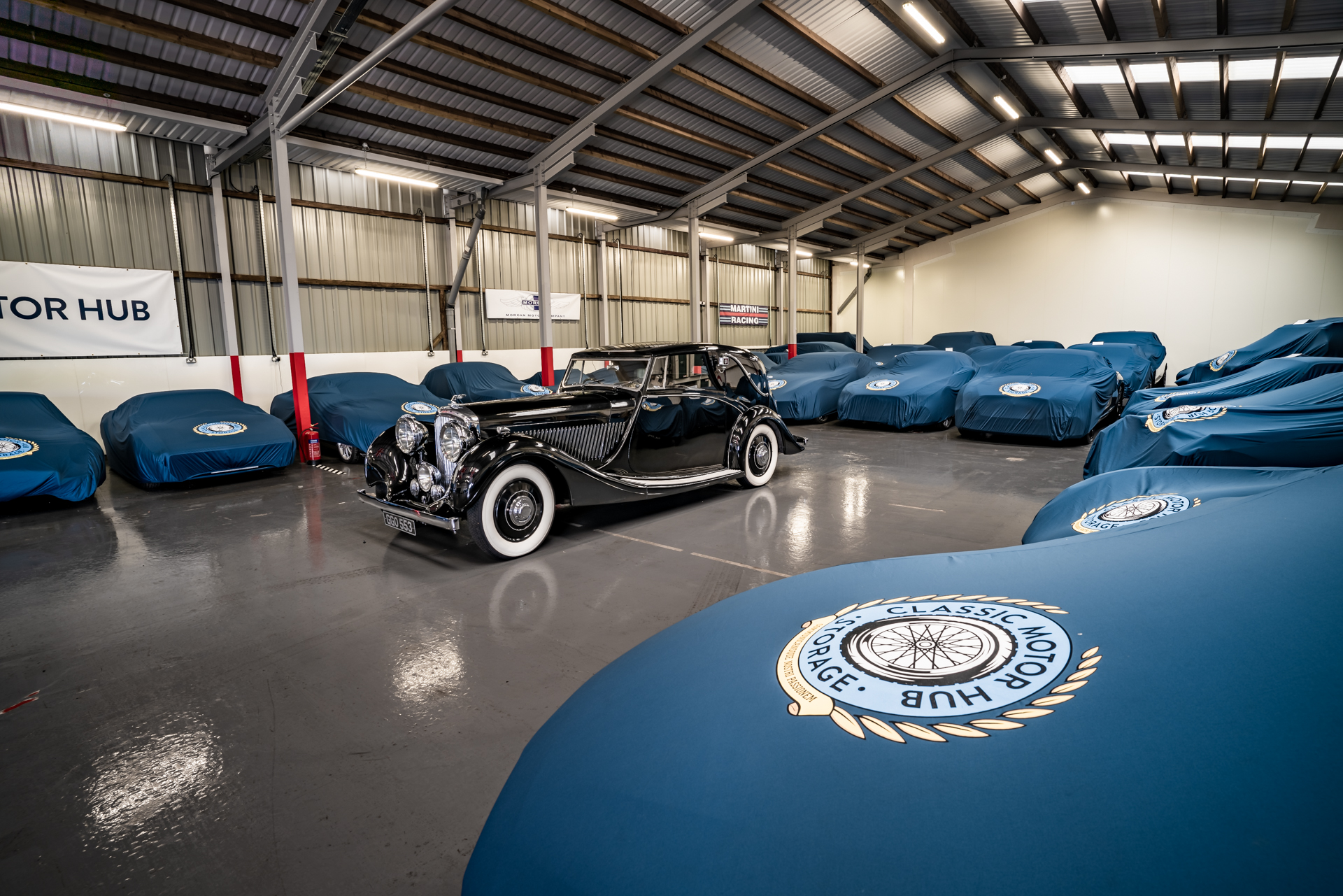
Car Storage In The Cotswolds
OXFORDSHIRE • GLOUCESTERSHIRE • COTSWOLDS
